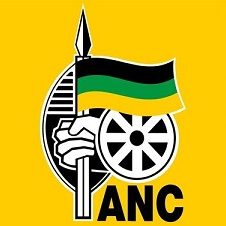It was in 1976, 16th June, when what normally occurs during the early hours happened, as birds sang their daily rhythm and a rooster woke the sleeping, across all townships, for those who understood the roosters’ language that day, the majority was young people.
Deep down the rooster was calling them to action. Repeatedly saying sabela uyabizwa! (Respond you being called!) Regardless of your linguistic background, the sound of the rooster was of African background and calling Africans to claim their self-determination, as if the rooster were accompanied by the ancestral spirit of comrade President Muziwakhe Lembede.
Young people woke up like a shooting star as their only wish was to destroy Afrikaans as a medium of teaching and claim their self. It is this month that as the youth of South Africa, we are found again rejuvenated by the same rooster. Although this time, it sounds from a distance as its rhythm cannot be heard as loudly as before because the rooster now is protecting itself with a mask but as young people, we understand the roosters’ language. The message remains and is that of sabela uyabizwa!
Indeed as the struggle then was centered on language as used by the government as an oppressive tool, we are still found expressing ourselves with this European one which in simple terms means that the struggle continues for self-determination. Perhaps we can shelve the language matter for a moment and respond to a call of youth economic empowerment (YEE), which must be a policy for the future of South Africa.
It was the ANC Youth League which ignited the important message of total liberation being characterized by economic freedom in our lifetime. Across all strata of society, achieving economical means turned into being the daily bread and as youth constitute the majority, YEE must be mainstreamed as the policy for a future South Africa. This policy must redress the inequalities of the past and future by giving the youth of South Africa preference in access to economic privileges. This policy must be about the inclusion of all young South Africans in the future of our economy, it must articulate youth representation in all spheres such as politics, business, means of production, and so forth.
As we remember the generation of 1976, our task as young people is to join hands and demand to participate in our economy through robust planning of our future. The route currently that we have is that of a policy like BEE but now we are calling for one especially for the young people, as we are the most vulnerable. We are being called to respond to such a policy direction and own it like our forebears when they demanded an end to Bantu education. We must pronounce a pure democracy when in all economic levers of society young people, who is the majority, are dominating.
As the world is disrupted by the articial intelligence (AI) applications, we must be at the forefront in de fining what kind of a future we want through such an advancement, such as youth
in AI transportation, youth in AI manufacturing, youth in AI re-industrialization, youth in AI health care, youth in AI agriculture, youth in AI commerce, and youth in AI education.
As we acknowledge this disruption, clearly our future needs a robust educational system, and mathematics must be compulsory in our schools to achieve a core AI South African youthful society.
YEE policy is calling us, and we must respond. The response that we should wish for this policy is to stop being aligned in order to be beneficiaries, as this strengthens the elitism within the organization and ultimately broader society. This policy must be a gage if other policies are implemented or not and which affects our future. It is us, the youth, who can stop this ill-discipline by the older guards.
Young people as defined by their energies are supposed to be like a shooting star. Let us respond to the call of YEE as we look for an eternity, a future that has no end that belongs to the young!
Sibusiso R. Bakana is a former ANC BEC of Ivory Park Central and a member of ANCYL Ivory Park Central writes in his personal capacity.
